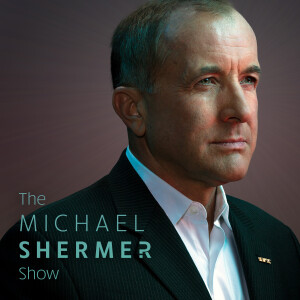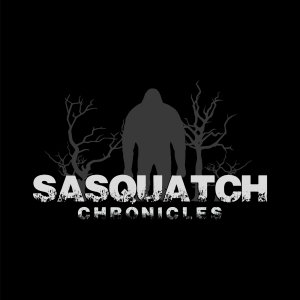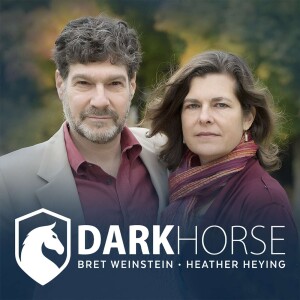
Awe is mysterious. How do we begin to quantify the goose bumps we feel when we see the Grand Canyon, or the utter amazement when we watch a child walk for the first time? How do you put into words the collective effervescence of standing in a crowd and singing in unison, or the wonder you feel while gazing at centuries-old works of art?
In this conversation based on his new book Awe, Dacher Keltner presents a radical investigation and deeply personal inquiry into this elusive emotion. Revealing new research into how awe transforms our brains and bodies, alongside an examination of awe across history, culture, and within his own life during a period of grief, Keltner shows us how cultivating awe in our everyday life leads us to appreciate what is most humane in our human nature. And during a moment in which our world feels more divided than ever before, and more imperiled by crises of different kinds, we are greatly in need of awe. If we open our minds, it is awe that sharpens our reasoning and orients us toward big ideas and new insights, that cools our immune system’s inflammation response and strengthens our bodies. It is awe that activates our inclination to share and create strong networks, to take actions that are good for the natural and social world around us. It is awe that transforms who we are, that inspires the creation of art, music, and religion. Aweis also a field guide for how to place awe as a vital force within our lives.
Shermer and Keltner discuss: the death of his brother and how this led to his study of awe • an operational definition of awe • the reliability (or unreliability) of self-report data in social science • how to quantify and measure the experience of awe • What are emotions and how can they be measured? • How has the scientific understanding of emotions changed? • predictors of awe: nature, music, art, dance, movement/exercise, love & friendships • awe in moral beauty • how to train yourself to experience awe • how awe helps heal traumas, grief, and loneliness • mystical experiences, spirituality, and awe restorative justice and awe.
Dacher Keltner is a professor of psychology at the University of California, Berkeley, and the faculty director of UC Berkeley’s Greater Good Science Center. A renowned expert in the science of human emotion, Dr. Keltner studies compassion and awe, how we express emotion, and how emotions guide our moral identities and search for meaning. His research interests also span issues of power, status, inequality, and social class. He is the author of The Power Paradox and the bestselling book Born to Be Good, and the coeditor of The Compassionate Instinct. His new book is Awe: The New Science of Everyday Wonder and How it Can Transform Your Life.
More Episodes
224. Bobby Duffy on The Generation Myth: Why When You’re Born Matters Less Than You Think
 2021-11-06
2021-11-06
223. Paul Bloom on the pleasures of suffering and the meaning of life
 2021-11-02
2021-11-02
222. Suzanne O’Sullivan on psychosomatic disorders and other mystery illnesses
 2021-10-30
2021-10-30
221. Antonio Damasio — Feeling & Knowing: Making Minds Conscious
 2021-10-26
2021-10-26
220. Charles Foster on Being a Human: Adventures in Forty Thousand Years of Consciousness
 2021-10-23
2021-10-23
219. In-Person Conversation (in Shermer’s Home) with Steven Pinker on Rationality: What it is, Why it Seems Scarce, Why it Matters in Shermer’s Home
 2021-10-19
2021-10-19
218. Craig Whitlock — The Afghanistan Papers: A Secret History of the War
 2021-10-16
2021-10-16
217. Mary Grabar on the 1619 Project, Howard Zinn, Historical Revisionism, and Pseudohistory
 2021-10-12
2021-10-12
216. Kathryn Paige Harden — The Genetic Lottery: Why DNA Matters for Social Equality
 2021-10-09
2021-10-09
215. Mary Eberstadt on God, Religion, Secularization, Sexual Revolution, and Identity Politics
 2021-10-05
2021-10-05
214. Tom Nichols — Our Own Worst Enemy: The Assault From Within on Modern Democracy
 2021-10-02
2021-10-02
213. Mike Rothschild — The Storm Is Upon Us: How QAnon Became a Movement, Cult, and Conspiracy Theory of Everything
 2021-09-28
2021-09-28
212. Gale Sinatra & Barbara Hofer — Science Denial: Why It Happens and What to Do About It
 2021-09-25
2021-09-25
211. Ashley Rindsberg — The Gray Lady Winked: How the New York Times’s Misreporting, Distortions and Fabrications Radically Alter History
 2021-09-21
2021-09-21
210. Leidy Klotz on doing more with less, based on his book Subtract: The Untapped Science of Less
 2021-09-18
2021-09-18
209. Heather Heying & Bret Weinstein on Evolution and the Challenges of Modern Life, Based on Their New Book a Hunter-Gatherer’s Guide to the 21st Century
 2021-09-14
2021-09-14
208. The Truth About 9/11 and Terrorism
 2021-09-10
2021-09-10
207. John Petrocelli — The Life-Changing Science of Detecting Bullshit
 2021-09-07
2021-09-07
206. Nichola Raihani — The Social Instinct: How Cooperation Shaped the World
 2021-09-04
2021-09-04
205. Richard Dawkins on evangelizing for evolution, science, skepticism, philosophy, reason, and rationality, based on his book Books Do Furnish a Life: Reading and Writing Science
 2021-09-01
2021-09-01
Create your
podcast in
minutes
- Full-featured podcast site
- Unlimited storage and bandwidth
- Comprehensive podcast stats
- Distribute to Apple Podcasts, Spotify, and more
- Make money with your podcast
It is Free
You may also like

Sasquatch Chronicles


Radiolab


The Confessionals


DarkHorse Podcast


Sasquatch Odyssey


- Privacy Policy
- Cookie Policy
- Terms of Use
- Consent Preferences
- Copyright © 2015-2024 Podbean.com


 iOS
iOS Android
Android